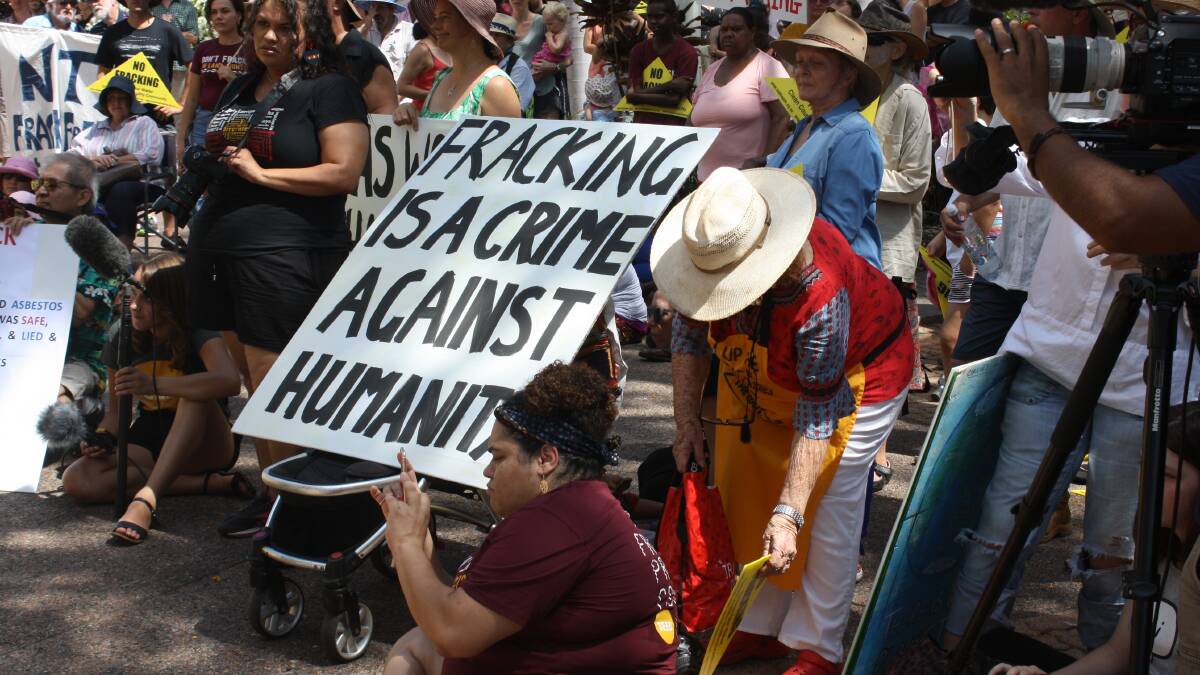
NT Chief Minister Michael Gunner has welcomed the release of the final report into the possible development of the NT’s shale gas reserves.
Subscribe now for unlimited access.
$0/
(min cost $0)
or signup to continue reading
“We will now carefully consider the report’s recommendations and take as long as is needed to make the right decision for the Territory.” Mr Gunner said.
“Once the final report has been carefully considered we will do what we have always promised Territorians - either ban fracking in the Northern Territory or allow it in highly regulated circumstances in tightly prescribed areas.
“We will put the Territory first and make the best decision for the Territory.
“We will not put at risk existing fishing, farming, tourism and cattle jobs for the possibility of jobs from fracking.” Mr Gunner said.
The final report of the Independent Scientific Inquiry into Hydraulic Fracturing in the Northern Territory can be found at www.frackinginquiry.nt.gov.au
The scientific panel’s view the industry could be developed with acceptable risk has been criticised by anti-fracking groups.
The Arid Lands Environment Centre said it welcomed the comprehensive detail in the Final Report, however disagrees that the myriad of risks exposed by the Inquiry from the process of fracking could ever be mitigated to an acceptable level.
“Implementing the recommendations in full is a huge task which would require a lot of time and resources, and allowing the moratorium to be lifted before an implementation plan is in place is not in the spirit of mitigating risk,” said Nicole Pietsch, Strategy and Communications Manager at the Arid Lands Environment Centre.
“There is significant doubt that the gas industry could comply with and finance many of the proposed recommendations, and that the NT government has the capacity to implement and enforce compliance of the recommendations.”
”A ban on fracking is the best option for the Territory to reduce the risks. We urge the NT Government to take the precautionary principle seriously and maintain the moratorium.”
The Australian Petroleum Production and Exploration Association said the report states any risks associated with onshore gas development and hydraulic fracturing can be managed by effective regulation.
APPEA spokesman Matthew Doman said, with the conclusion of the 15-month inquiry, it was now critical the NT Government makes a prompt decision to give certainty to investors, local businesses, Traditional Owners, landholders and all Territorians.
“The final report confirms that developing the Territory’s natural gas resources would have significant economic and employment benefits for the NT,” Mr Doman said.
“It has debunked many of the myths spread by activists opposed to onshore gas development.”
He said the report echoes the conclusion reached by numerous other scientific inquiries and reviews that any risks associated with hydraulic fracturing can be minimised or eliminated with proper regulation.
“The report makes 135 recommendations, which will need to be considered carefully,” Mr Doman said.
Lock the Gate is calling on the NT Government to extend the moratorium on exploration fracking until at least such a time as all risks assessments and other studies have been completed and can be considered, or to take the next step and ban fracking permanently.
“The NT Fracking Inquiry has shown that there are significant risks that come with the onshore gas fracking industry and a sizable amount of work required before any exploration fracking could be considered,” said Naomi Hogan of the Lock the Gate Alliance.
“The report has also highlights strong community opposition held by the vast majority of Territorians participating in the inquiry, and almost universal concern and opposition to fracking from Aboriginal people from regional NT communities.
“This report’s 135 recommendations and the serious information gaps identified, coupled with the increasing evidence of harm from fracking around the world, should be a wake up call to the NT Government that fracking is simply not worth the risk.
“The NT Government needs to extend the moratorium on exploration and production until all risks assessments and other studies have been completed, or take the next step and ban fracking permanently.
“First hand experience shared by the boom and bust onshore gas towns in QLD demonstrate communities were left worse off by the gas companies in the region.
“A new collection of international research into fracking released this month by Nobel Prize winning scientists shows that fracking increases the risks of cancer, birth defects and asthma. The US EPA shows fracking has contaminated drinking water.
“Many countries of the world have banned fracking in the interest of protecting their water and their existing industries.
“The gas industry’s own polling shows that Territorians living in at-risk gasfield areas want the moratorium to stay in place, to protect them from the identified impacts and risks fracking will bring.”


